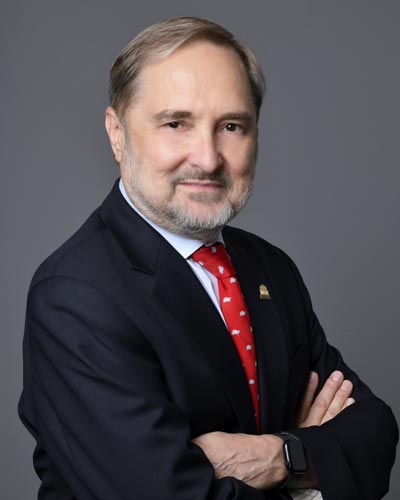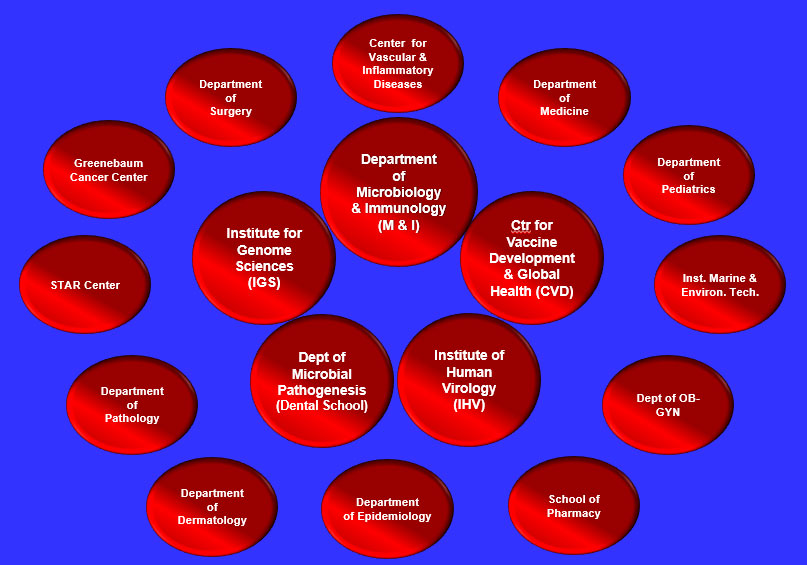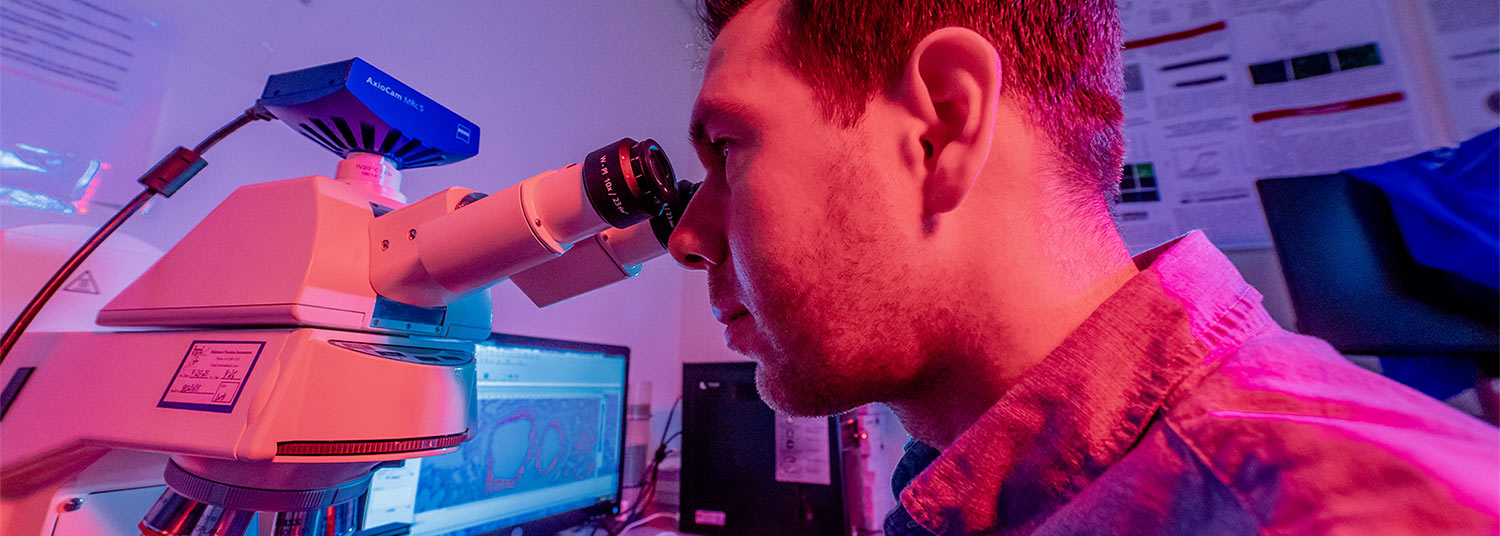Department Chair

Overview
The Department of Microbiology & Immunology serves as the academic home for basic scientists in the area of microbiology, immunology and infectious diseases at the University of Maryland School of Medicine (UMSOM), with the majority of such investigators holding either primary or secondary academic appointments in this department. Department faculty includes 49 primary and 32 secondary faculty members many of whom are located in the Institute for Genome Sciences, the Institute of Human Virology, the Center for Vaccine Development, the Center for Vascular & Inflammatory Diseases, the Greenebaum Cancer Center, the Program in the Biology of Model Systems, and the UM Dental School. The department was founded in 1919, and the current chair is James B. Kaper, PhD.
Research topics by primary faculty members in the Department include molecular pathogenesis of bacterial, viral, and parasitic pathogens, innate immune responses to bacteria and viruses, microbial genomics and metagenomics, evolution of the immune system and microbial pathogens, pathogenesis of autoimmune disease, stem cell biology, vaccine development, and the development of novel cancer immunotherapies, among others. Faculty members are also responsible for graduate student education in the Molecular Microbiology & Immunology Program and medical student education in the Blood and Host Defenses course. Department faculty members also oversee the UMSOM BSL-3 and Biopolymer Laboratory core facilities.
The UMSOM has great strengths in the area of microbiology, immunology, and infectious diseases, including three internationally renowned centers of excellence, the Center for Vaccine Development, the Institute of Human Virology, and the Institute for Genome Sciences.
The Center for Vaccine Development (CVD) was established by Dr. Myron Levine and is unique among academic centers for the breadth of the basic and applied research conducted on vaccines for a variety of bacterial, viral, and parasitic agents. The CVD has also served as the lead institution for several national and international collaborative projects including the Mid-Atlantic Regional Center of Excellence for Biodefense and Emerging Infectious Diseases (MARCE) and the Global Enterics Multicenter Study (GEMS).
The Institute of Human Virology (IHV) was founded by Dr. Robert Gallo, who along with his colleagues is well-known for the co-discovery of the HIV virus, development of the first HIV blood test, the discovery of IL-2 and other scientific breakthroughs. Research in the IHV ranges from basic laboratory studies of the pathogenesis of HIV and other viruses, to clinical and epidemiological studies of viral disease, to translational research for the development of new therapies and vaccines.
The Institute for Genome Sciences (IGS) was founded in 2007 by Dr. Claire Fraser-Liggett, formerly Director of The Institute for Genome Research (TIGR), along with more than a dozen former TIGR investigators who now comprise the IGS faculty. IGS investigators have a long record of accomplishments in microbial genomics, comparative genomics, metagenomics, and bioinformatics.
In addition to these major research units, there are several other foci of ongoing research in microbiology, immunology, and infectious diseases on campus, with most faculty holding primary or secondary appointments in the Department of Microbiology & Immunology. For example, the Center for Vascular and Inflammatory Diseases contains several immunologists working on autoimmunity, allergic reactions and transplant immunology. The Department of Microbial Pathogenesis in the University of Maryland Dental School contains several bacteriologists investigating Chlamydia, Staphylococcus, Corynebacterium, and other pathogens. Researchers in the University of Maryland Greenebaum Comprehensive Cancer Center investigate molecular mechanisms of innate anti-tumor and anti-microbial activities of interferon and novel immunotherapy of cancer. The members of the Program in the Biology of Model Systems at IMET pursue research involving Innate Immunity, and Archaea. Additional researchers in the areas of microbiology, immunology and infectious diseases can be found in other departments of the UMSOM.
This extensive research community on our campus, graphically depicted in the figure below, is funded by more than $80 million in annual grants and contracts. Faculty members in this community collaborate extensively in research activities and in graduate and medical student education. This extensive collaboration is facilitated by the close proximity of these investigators within a three-block area, surely one of the highest densities of microbiology, immunology, and infectious disease researchers in the world. This community offers exceptional research and training opportunities in the area of microbiology, immunology, and infectious disease.
Research at Univesity of Maryland, Baltimore (UMB)
Microbiology / Immunology / Infections Diseases Research at UMB


